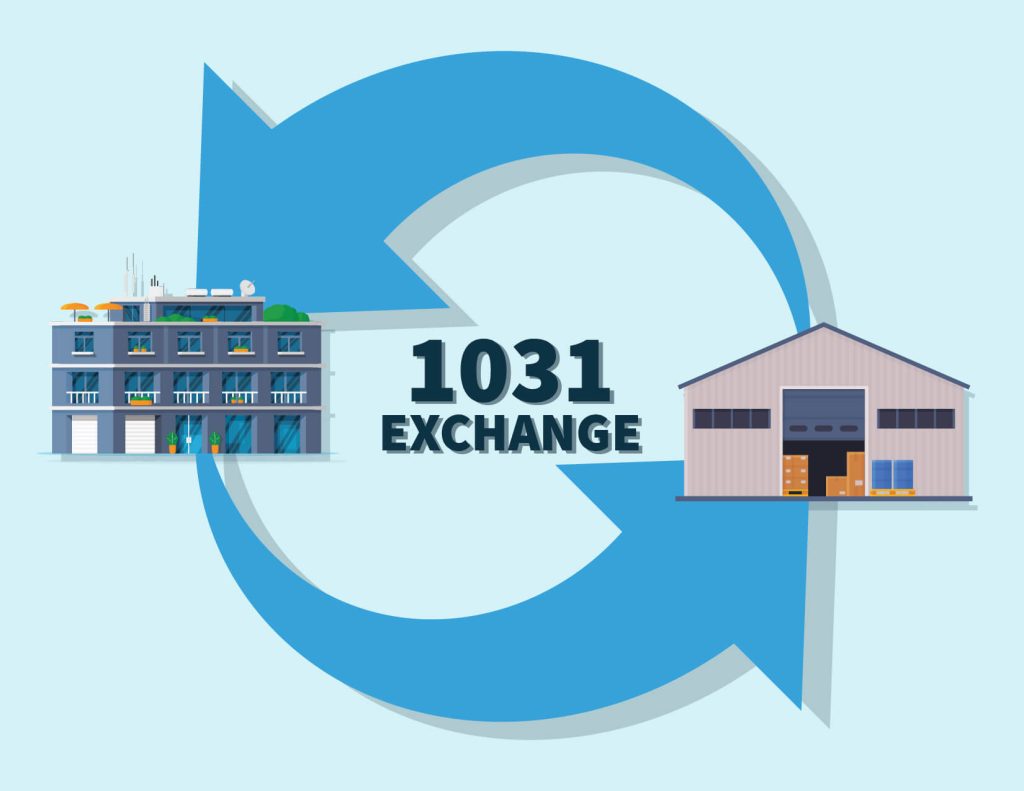1031 Exchange Stocks to Real Estate | Tax-Free Strategy 2025
Learn how to use a 1031 exchange to switch from stocks to real estate without paying capital gains tax. Smart, legal, and IRS-compliant in 2025.

Admin
June 19, 2025

INTRODUCTION
As we move into a high-interest, high-regulation environment in 2025, investors are seeking smarter, tax-advantaged ways to shift their portfolios. One of the most strategic moves? Transitioning from stocks to real estate using 1031-adjacent strategies legally, efficiently, and profitably.
Advertisement
In-Content Ad
Blog Detail - After Two Paragraphs
High Engagement Zone
Let’s clear the confusion: You cannot do a direct 1031 exchange from stocks to real estate. But with careful planning, you can sell stocks, defer or minimize capital gains, and then use those proceeds to buy 1031-eligible real estate setting up your portfolio for future tax-deferred growth.
Understanding the 1031 Exchange And Its Limits
Section 1031 of the Internal Revenue Code allows investors to defer capital gains tax when they exchange one investment or business-use real estate property for another of like kind. This powerful wealth-building tool has been preserved even after 2017’s Tax Cuts and Jobs Act, though now it applies only to real estate.
Stocks, bonds, and REITs? They don’t qualify.
Strategic Workaround: Stocks to Real Estate via Proceeds
Here’s a commonly used investor path:
Sell stocks often in a low-tax year or with offsetting capital losses
Use proceeds to purchase income-producing real estate
Once the real estate is owned, it becomes eligible for future 1031 exchanges
Investors build a “1031 exchange ladder” from that point forward
This approach doesn’t avoid tax immediately but positions you to defer taxes long-term.
Compare: Stocks vs. Real Estate in 2025
|
Feature |
Stocks |
Real Estate |
|
Liquidity |
High |
Low |
|
Tax Deferral Potential |
Limited |
Strong via 1031 Exchange |
|
Depreciation Benefits |
None |
Yes |
|
Leverage Opportunities |
Limited |
High |
|
Cash Flow |
Low (dividends) |
High (rental income) |
|
Volatility |
High |
Lower, more stable |
Use Case: Investing in a DST (Delaware Statutory Trust)
Let’s say you’ve sold $500K in stock gains and are staring down a potential $100K+ capital gains tax bill. A DST allows you to invest in fractional shares of institutional-grade real estate fully 1031-eligible.
So while you can't directly 1031 from stocks to real estate, you can:
Sell stocks
Pay tax or use deferral strategies
Use proceeds to buy into a DST
Qualify that DST property for future 1031 exchanges
This builds long-term deferral layers while benefiting from passive income.
Why More Investors Are Making the Move in 2025
Rising capital gains taxes and increased market volatility are driving investors toward hard assets like real estate. With inflation-adjusted rent income and long-term appreciation, real estate now offers more risk-adjusted return than ever especially when combined with 1031 benefits.
A recent Deloitte report noted a 17% year-over-year increase in 1031 exchange activity among high-net-worth investors in Q1 2025.
Advertisement
Mid-Article Ad
Blog Detail - Middle of Content
Maximum Visibility
Alternative Strategies to Consider
While you can’t 1031 from stocks directly, smart investors use:
Opportunity Zone Funds (OZFs)
Charitable Remainder Trusts (CRTs)
Tax-loss harvesting on equities
REIT-to-DST transitions
Key Takeaways
You cannot directly 1031 stocks into real estate
You can sell stocks, then use strategic structures to reduce taxes
Investing in DSTs or rental real estate sets you up for future 1031 exchanges
Real estate offers cash flow, appreciation, leverage, and tax benefits that stocks do not
Work with a CPA or qualified exchange intermediary (QI) to stay compliant
FAQs
1. Can I use a 1031 exchange to move from stocks to real estate?
Technically, no a traditional 1031 exchange under IRS §1031 only allows the exchange of like-kind real estate for other real estate. However, many investors achieve a similar result using strategies like selling appreciated stocks, paying no tax by offsetting gains with losses, or using an Opportunity Zone Fund or structured DST (Delaware Statutory Trust). Consult a CPA or real estate tax strategist to plan this correctly.
2. What’s a legal workaround to move from stocks into real estate tax-deferred?
You can't directly do a 1031 exchange from stocks, but many investors sell stocks, then immediately invest the proceeds into qualified real estate vehicles like Opportunity Zone investments or DSTs, potentially deferring or reducing capital gains. These moves require careful planning, documentation, and timing to remain IRS-compliant.
3. Why is real estate better than stocks for 1031 exchanges?
Real estate qualifies for tax-deferred exchanges under Section 1031, while stocks do not. That makes real estate a powerful tool for building generational wealth, deferring taxes, and leveraging income-producing assets advantages not offered by equities.
4. What is a DST in the context of real estate investing?
A Delaware Statutory Trust (DST) is a legally recognized real estate investment structure that allows fractional ownership in large, professionally managed commercial properties. DSTs are 1031 eligible, so investors who sell investment property can reinvest proceeds into a DST and defer capital gains.
5. How do I avoid capital gains tax when selling stocks?
To legally avoid or defer capital gains on stocks, investors may:
· Harvest tax losses
· Invest in Opportunity Zone Funds
· Donate to charities (charitable remainder trusts)
· Use gains to offset passive real estate losses
While these aren't direct 1031 exchanges, they can provide similar tax-sheltering outcomes.
6. Can I reinvest stock sale profits into a rental property?
Yes, you can reinvest stock proceeds into a rental property, but it won't qualify as a 1031 exchange. You’ll pay capital gains on your stock sale, but you can then benefit from depreciation, passive income, and appreciation from the rental property.
7. What is the Opportunity Zone program, and how does it compare to a 1031 exchange?
Opportunity Zones let you reinvest capital gains (from stocks or other assets) into designated economically distressed areas. You can defer taxes and potentially eliminate future gains if you hold the investment for at least 10 years. While not a 1031, it's a compelling capital gains mitigation strategy.
8. Can I combine stock sales and 1031 real estate investments?
Yes, but they must be structured separately. Sell your stocks, pay applicable tax or use a tax-deferral strategy, then use after-tax proceeds to invest in real estate potentially setting yourself up for future 1031 exchanges on that property.
9. What are the capital gains tax rates on stocks in 2025?
In 2025, long-term capital gains on stocks range from 0% to 20% based on your income bracket. High-income investors may also pay a 3.8% net investment income tax (NIIT). Minimizing or deferring these taxes via real estate strategies is a common high-net-worth strategy.
10. Is it better to hold stocks or real estate for long-term wealth?
Real estate often provides more predictable cash flow, tax advantages, and leverage than stocks. While stocks offer liquidity, real estate’s 1031 exchange, depreciation, and control features make it a preferred vehicle for long-term, tax-efficient wealth building.
Conclusion
While the IRS doesn’t allow a 1031 exchange from stocks to real estate directly, the savvy investor knows there’s a strategic path to make the move legally and profitably. By selling equities, leveraging tax-saving strategies, and purchasing real estate eligible for 1031 treatment, you can pivot into long-term, tax-advantaged growth.
Advertisement
Before Last 2 Tags
Blog Detail - Before Last 2 Tags in Description
Final Engagement Point

About Admin
Related Articles

Best Bag for Real Estate Agent 2025
Real estate agents need bags that blend style, function, and comfort. Discover the 2025 picks that keep you organized and professional all day.

Admin
Aug 26, 2025

Can You Lose Your Real Estate License? Expert Guide
Discover the real reasons agents lose real estate licenses. Avoid costly mistakes with expert insights and real-world examples.

Admin
Aug 19, 2025

506(b) Real Estate: SEC Rules & Benefits Explained
Learn what 506(b) real estate means, its SEC rules, benefits, and investor requirements in this expert guide for 2025 property syndications.

Admin
Aug 15, 2025